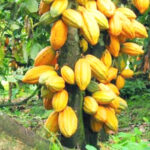Since the return of avian influenza, also known as bird flu, in December 2021, the virus, which is airborne, has continued to spread to various parts of the country, including Plateau, Kano, Katsina and Kaduna states.
Daily Trust on Sunday reports that many of the affected farms have large commercial flocks, forcing government officials to depopulate the farms.
- Kwankwaso, ministers, others storm Kano as AGF Idris marries off daughter
- How loose security at airports aids arms, drugs influx into Nigeria
Bird flu has no cure; hence experts advise that the best way to tackle the virus is through prevention by ensuring bio-security measures and restricting exposure. However, as the disease continues to spread, many farmers are now concealing the outbreak and selling their poultry products due to the fear of double jeopardy, high mortality or depopulation of farmlands by government officials without adequate compensation.
In Plateau State, the outbreak was first noticed few days to Christmas. The Poultry Association of Nigeria (PAN) said the virus had ravaged six farms spread across three local government areas in the state.
In Kaduna, the association said the virus, which was detected in January, ravaged three farms in Lere and Chikun local government areas, while test results conducted at the National Veterinary Research Institute (NVRI), Vom in Plateau State for a fourth farm in Igabi Local Government Area returned negative.
In Katsina, the PAN chairman, Alhaji Musa Danhassan, said the virus had hit the state hard in many farms, with large flocks affected. “Many farms have reported but many others have not. Though it is reducing lately, it affected mostly farms with layers, pigeons and even our local chicken.
“Some farms had up to 40,000, 30,000, 10,000, 5,000 birds. Some did not even report their situation; therefore, we cannot give the rough estimate of loss suffered by our members, but it is really huge,” he said.
Why farmers are concealing the outbreak
Speaking on the likelihood that farmers are concealing the outbreak of the disease, the PAN chairman in Kaduna, Musa Bala, said although the virus had been brought under control in the state, it is a criminal offence for anyone to conceal it.
“In Kaduna, we have the Livestock Regulatory Agency and a good relationship with them, so we tell them when there is an outbreak. I have just returned from weekly inspection of some farms, and we don’t have such issues of concealment here,” he said.
The situation is, however, reversed in Katsina and Plateau, where several farm owners are said to have concealed the disease and sold off their birds, further putting residents at risk.
Speaking with our correspondent, the PAN chairman in Katsina, Alhaji Musa Danhassan said, “These are not hearsay. It is true that some members are selling their own simply because government made it clear that they would not compensate anyone.”
He said the outbreak of the virus had since been reported to the state authorities but the farmers are yet to receive any response. “No one was reported to have contracted the disease in the state, in terms of transmission to human. Some members are aware of the risks involved, while others are not. However, the leadership of the association is doing its best to sensitise members of the dangers involved,” he said.
He called on the authorities concerned to take some measures to curtail further spread of the disease in the state. The measures, he said, should include banning the importation of eggs, chicken manure and even birds from other states.
On his part, the PAN chairman in Plateau State, Johnson Bagudu, said no poultry owner had reported the outbreak to the association because they were afraid of possible depopulation of their farms and non-compensation by the authorities, as well as stigmatisation after the incident.
“Farmers fear that long after the measures taken on their farms to contain the disease, buyers of their birds would not want to patronise them,” he said.
He narrated that one of the farmers had lost almost all his birds due to the flu, but when he was asked about it, the farmer denied that it was as a result of bird flu.
“If they do not report officially, there is little or nothing we can do because the birds would be quickly disposed of, and we cannot act on speculation,” he added.
He advised farmers to get insurance, adding that the association was working on getting them a policy to ensure that in the event of such disaster, farmers would not suffer total loss.
Meanwhile, a large poultry farm owner, Caleb Manegbe, said that even some insurance companies try to avoid a policy on bird blu because of its frequent outbreaks, which lead to colossal damage.
He advised the government to handle the issue with sincerity, adding that depopulating affected farms without compensation is viewed by farmers as an unjust attack on the industry because it is in contrast with global practice.
We’ll pay compensation – Katsina govt
The government of Katsina State said it had taken adequate measures to prevent the spread of the disease, such as depopulating and quarantining the affected farms, as well as disinfecting the affected areas and restricting movements.
The special adviser to Governor Aminu Masari on livestock and grazing reserves, Dr Lawal Bagiwa, confirmed that the flu manifested in many parts of the state and a special taskforce involving health workers, security men and government officials had been reactivated and was already doing the needful to contain the situation.
Dr Bagiwa, however, faulted the allegation that government would not pay compensation to those who suffered losses, saying, “That is untrue. There is nowhere the government said it would not pay compensation or give financial support, only that you have to abide by the rules and regulations set out to contain the situation.
“Those that are complaining are those that failed to report the matter when it was detected on their farms but rushed to sell off their birds, thereby endangering other people, as well as the government.”

 Join Daily Trust WhatsApp Community For Quick Access To News and Happenings Around You.
Join Daily Trust WhatsApp Community For Quick Access To News and Happenings Around You.


